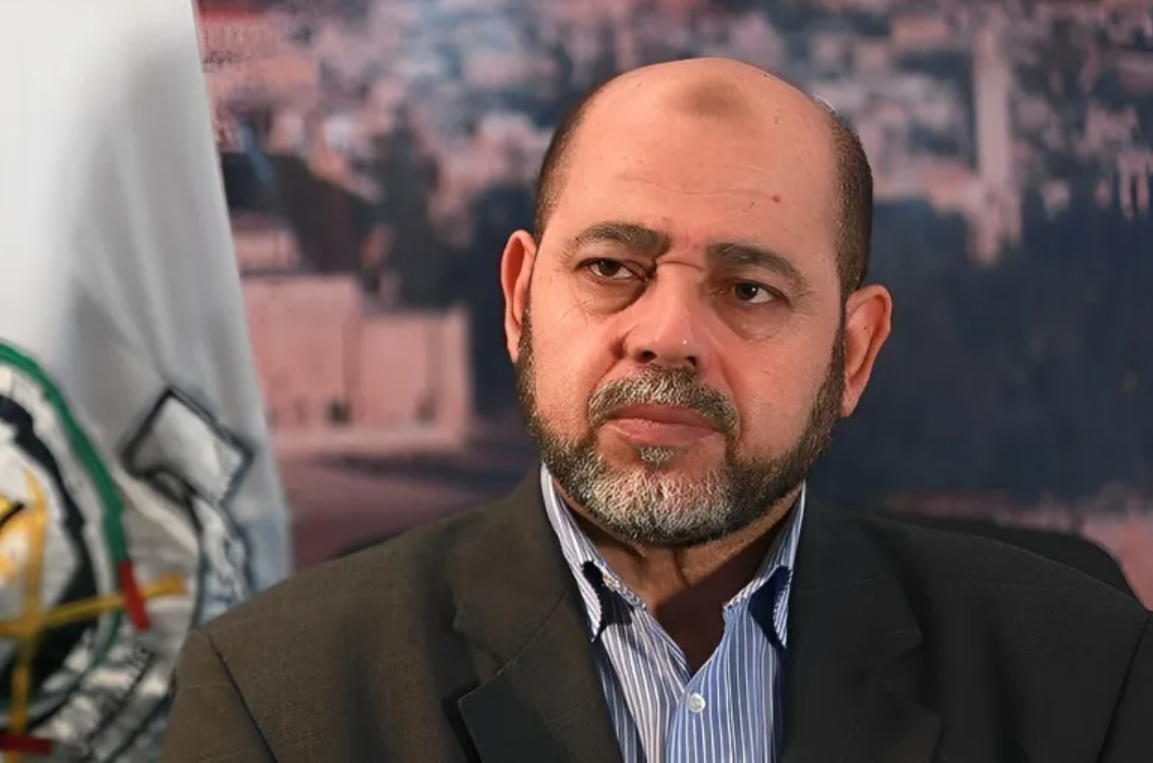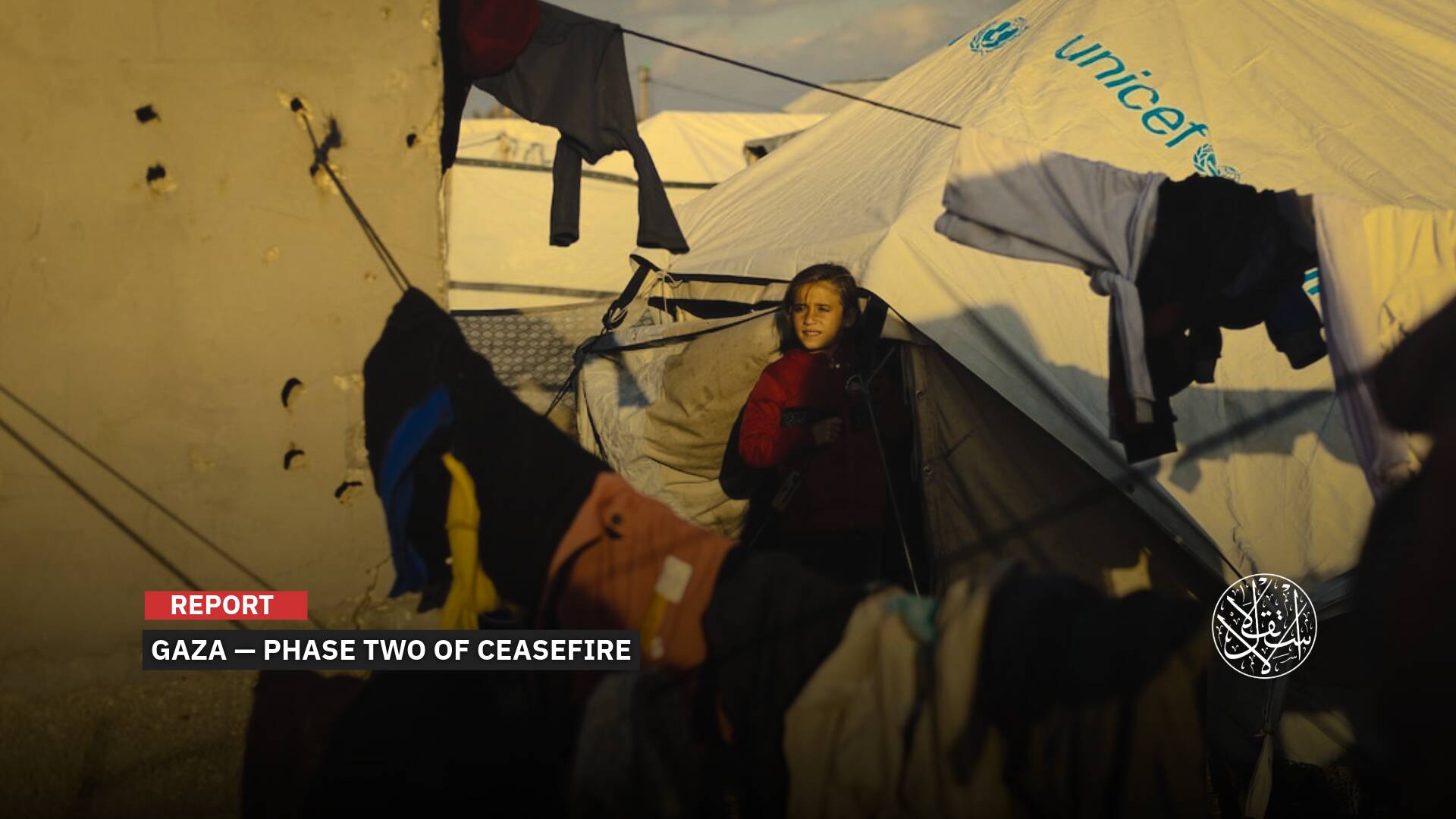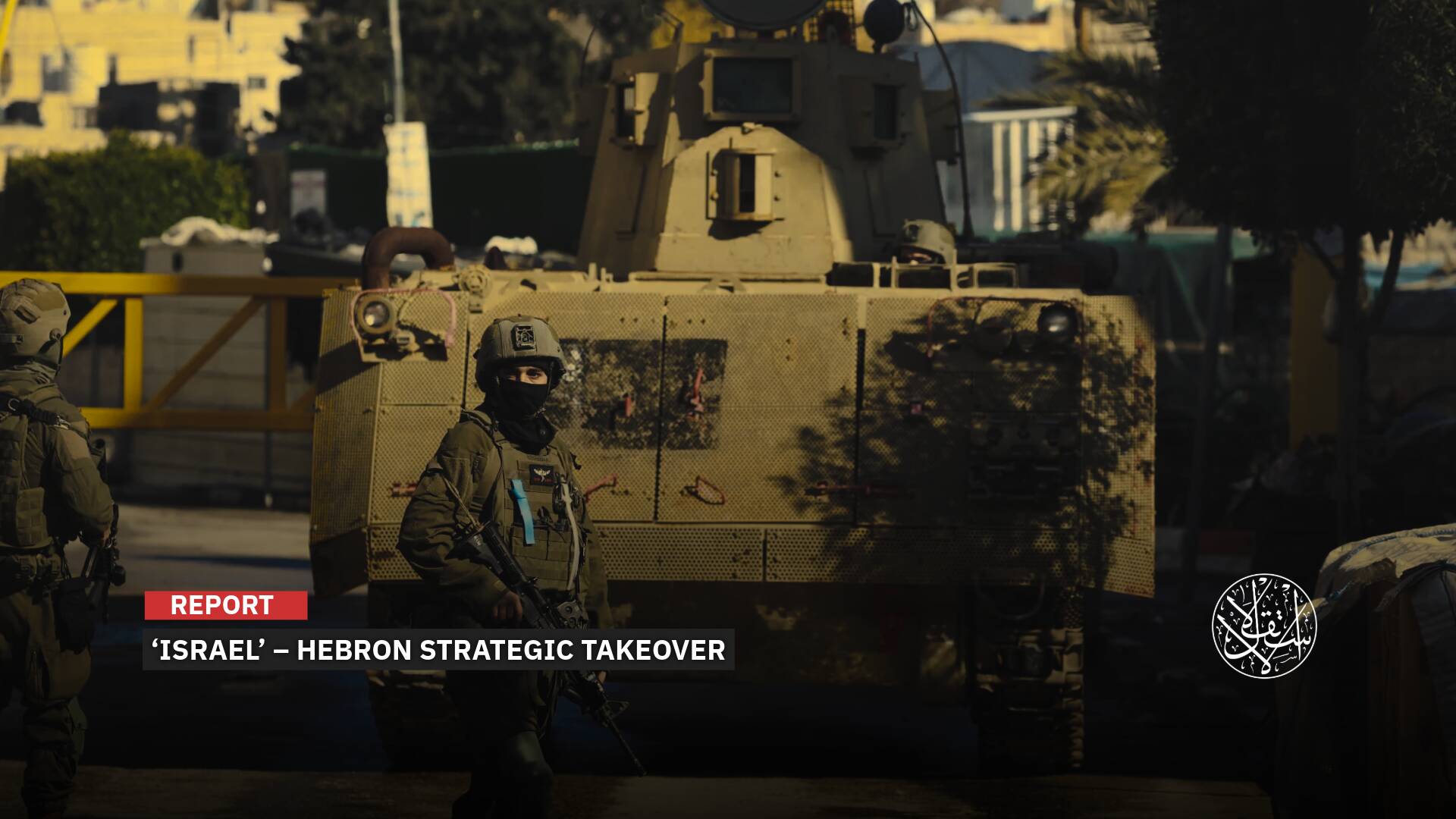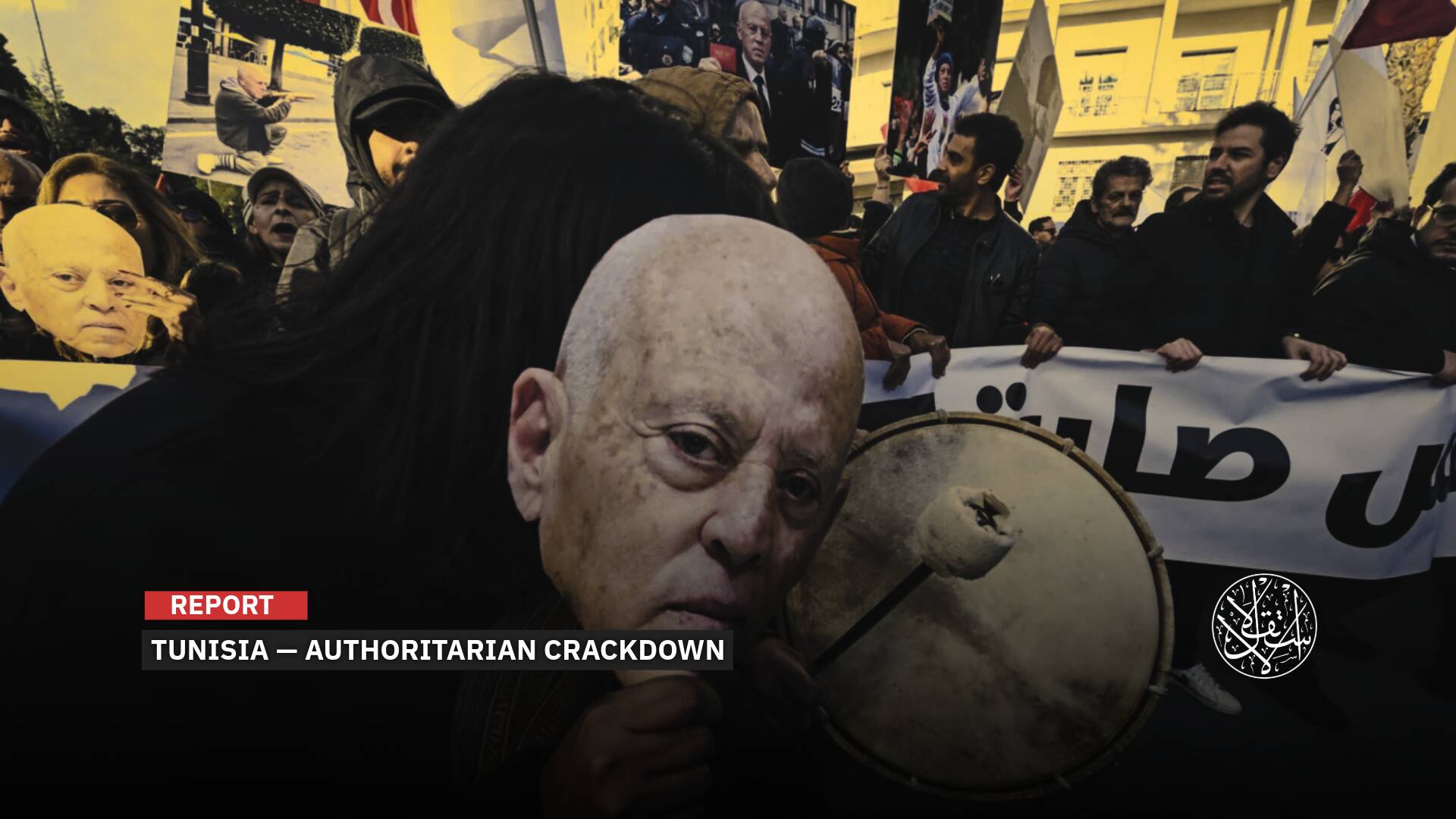Who Will Succeed Ismail Haniyeh? Meet the Top Potential Hamas Leaders

Hamas is working to select a new leader capable of steering the movement amidst the ongoing Israeli onslaught.
Meetings are in full swing within the ranks of the Palestinian Resistance Movement (Hamas) to select a new leader for its political bureau, following the assassination of its president, Ismail Haniyeh, on July 31, 2024, in an Israeli missile strike targeting his residence in Tehran.
The assassination of Haniyeh was a loss to Hamas, given his stature as one of its historical leaders with considerable administrative and political weight. He was also a prominent figure in the Palestinian resistance, known for his influential leadership and eloquence.
Hamas is now focused on minimizing the impact of this loss by choosing a new leader capable of succeeding Haniyeh and steering the movement amid the ongoing Israeli war that has raged since October 7, 2023.
According to Hamas' charter, the members of the Central Shura Council, which includes about 50 members, among them the central political bureau members, elect the president.
The composition of the Shura Council and the political bureau is divided into three equal shares representing the three main operational arenas of the movement: Gaza, the West Bank, and the diaspora, with one-third for each.
Gaza holds the most significant weight within Hamas due to its military, economic, and organizational strengths.
Observers note that certain individuals are strong candidates to succeed Ismail Haniyeh, especially given that some of the movement's leaders reside within Gaza while others are outside.
Among the top potential leaders are Khaled Meshaal, Khalil al-Hayya, Mousa Abu Marzook, Yahya Sinwar, Osama Hamdan, and Zaher Jabarin.
Khaled Meshaal
Khaled Meshaal (68 years old) is a strong candidate for leading the political bureau after Ismail Haniyeh's assassination, particularly since he previously held the position for a long period from 1996 to 2017, totaling 21 years.
His full name is Khaled Abdul Rahim Ismail Abdul Qader Meshaal, born on May 28, 1956, in the town of Silwad, north of Ramallah in Palestine.
He spent his early childhood there for 11 years before his family emigrated from Palestine.
Meshaal joined the Palestinian wing of the Muslim Brotherhood in 1971 and led the Palestinian Brotherhood faction at Kuwait University under the name "Islamic Right Bloc."
Nicknamed Abu al-Walid, Meshaal is one of the founders of Hamas and has been a member of its political bureau since its inception.
On March 23, 2004, he was appointed as the leader following the assassination of Sheikh Ahmed Yassin.
He is known for advocating a military approach against the Israeli Occupation and was one of the first to adopt the concept of armed struggle in response to the failures of the peace process and the targeted assassinations of key resistance leaders, including Sheikh Yassin and Dr. Abdul Aziz al-Rantisi.
Meshaal is known for crafting decisive stances for his movement in logical and moderate terms. He is described as a resilient yet flexible negotiator with compelling arguments.
He remains a constant target for the Israeli Mossad, having survived an assassination attempt in Jordan on September 25, 1997, by Israeli intelligence agents.
However, Meshaal's leadership is not universally welcomed, particularly by Iran, due to his attempts to distance Hamas from Tehran and align it more with Sunni powers, particularly Turkiye, Qatar, and Saudi Arabia.
Additionally, his long residence outside Gaza has caused him to lose direct contact with the influential leaders within Hamas' military wing.

Khalil al-Hayya
Among the heavyweight contenders to assume the leadership of Hamas' political bureau in these challenging times is Dr. Khalil al-Hayya.
Al-Hayya (63 years old) has been a key figure in the indirect negotiations between Hamas and “Israel” for prisoner exchange deals and ceasefire agreements in Gaza.
Regarding his life and political career, his full name is Khalil Ismail Ibrahim al-Hayya, known as Abu Osama.
He was born in Gaza on November 5, 1960, and received his education there, studying religious foundations at the Islamic University, graduating in 1983.
He then went to Jordan to continue his studies in religion and Sharia for three years, earning a master's degree in Hadith studies in 1986.
He later obtained a PhD in Islamic Sciences from the University of Khartoum in Sudan in 1997.
Al-Hayya was a founding member of Hamas in 1987 and is considered part of the hawkish faction within the movement. He was close to Sheikh Ahmed Yassin, the founder and leader of Hamas until his assassination.
Administratively, Khalil al-Hayya has held several political positions, including being a member of the Palestinian Legislative Council representing Hamas.
He has also served as the deputy head of the movement in Gaza, head of its media office, and head of the Arab and Islamic relations office.
Al-Hayya has survived multiple assassination attempts by “Israel,” though he lost family members in these attacks. The first assassination attempt was in 2007, and the second one was in 2014.
Notably, on February 21, 2022, the Jerusalem Center for Public Affairs published a report on Khalil al-Hayya's rising prominence within Hamas' leadership.
The report stated that al-Hayya has become one of the top five leaders of the movement abroad, paving the way for his election as a leader.

Mousa Abu Marzook
Mousa Abu Marzook's substantial experience and previous leadership role position him as a strong contender to succeed Haniyeh. He was the first head of Hamas' political bureau, serving from 1992 to 1996.
Abu Marzook (73 years old) was a close associate of Ismail Haniyeh and currently holds the position of the second deputy head of the political bureau. He is also the only member of Hamas' external leadership structure directly from Gaza.
Regarding his life, Mousa Mohammed Mohammed Abu Marzook was born in the Rafah refugee camp in southern Gaza in 1951. He received his primary education in Gaza's schools before moving to Egypt, where he graduated from Helwan University in 1975 with a degree in Mechanical Engineering, specializing in Production Engineering.
He pursued further studies in the United States, earning a master's degree in Construction Management in 1984 and a PhD in Industrial Engineering in 1992.
Abu Marzook is one of the most prominent leaders, and founders of Hamas, having begun his Islamic advocacy work in the late 1960s. He helped establish the first Islamic work groups in Rafah, which later integrated with similar groups in Gaza.
He is also credited with co-founding the Islamic University of Gaza and serves on its supervisory board.
A significant moment in Abu Marzook's life was reorganizing Hamas' ranks after Israeli forces arrested its leaders and most of its cadres in 1989. He has a long history in negotiation and managing international files.
In 2012, he left Syria and subsequently resided in Egypt, Qatar, and Palestine. Abu Marzook led Hamas' delegation in the Cairo talks on Palestinian reconciliation from 2009 and continued even after the announcement of the national consensus government in 2014.
During Hamas' internal elections on May 6, 2017, Abu Marzook was one of three leaders, along with Ismail Haniyeh and Mohammad Nazzal. The Shura Council elected Haniyeh as the head, and Abu Marzook was chosen as a member of the political bureau.

Yahya Sinwar
Despite the challenges he faces, Yahya Sinwar (61 years old) remains a strong candidate to succeed Haniyeh.
Known as a nightmare for Israelis, Sinwar is currently the head of the movement within Gaza and is considered an icon of resistance. He has significant influence due to his control over the military wing, particularly as the mastermind behind Operation al-Aqsa Flood on October 7, 2023, which put him at the top of the Israeli Occupation’s most-wanted list.
Regarding his life, Yahya Ibrahim Hassan Sinwar, nicknamed Abu Ibrahim, was born in October 1962 in the Khan Younis refugee camp in Gaza. His family hails from the occupied city of al-Majdal Asqalan in southern Palestine.
He completed his secondary education in the camp's schools and then joined the Islamic University, where he earned a bachelor's degree in Arabic language. From a young age, he was involved with the Muslim Brotherhood, which later transformed into the Hamas movement in late 1987.
During his university studies, he led the Islamic Bloc, the student arm of the Muslim Brotherhood at the time. In 1985, Sinwar founded the Brotherhood's security apparatus known as Majd.
This organization focused on resisting the Israeli Occupation in Gaza and eliminating Palestinian collaborators.
According to reports, Sinwar personally killed some of these collaborators, as mentioned by the Hebrew newspaper Maariv in February 2017. His relationship with Hamas founder Sheikh Ahmed Yassin was very strong, and they collaborated to establish the Majd security apparatus together.
Sinwar spent 23 consecutive years in Israeli prisons until he was released in the prisoner exchange deal between Hamas and “Israel” in 2011, known as the Shalit Deal or Wafa al-Ahrar, brokered by Egypt.
After his release, Sinwar participated in Hamas' internal elections in 2012, won a seat on the political bureau, and took charge of overseeing the military wing, the Izz ad-Din al-Qassam Brigades.
In 2015, Hamas appointed him as responsible for the Israeli prisoners held by the Qassam Brigades.
On February 13, 2017, Yahya Sinwar was elected head of the political bureau in Gaza, succeeding Ismail Haniyeh, with Khalil al-Hayya chosen as his deputy.
However, Sinwar's leadership of the political bureau is hindered by his position at the top of the Israeli Occupation’s wanted list, making it difficult for him to take on any roles or maintain regular communication.

Osama Hamdan
Osama Hamdan (59 years old) is one of the potential successors to Haniyeh, particularly given his prominent role as a political leader within the movement.
Born in Gaza in 1965 to a family of refugees displaced during the 1948 Nakba from East Majdal (Asqalan), Hamdan's family again moved in 1967, settling outside the occupied territories. He completed his secondary education in Kuwait and his university studies in Jordan before representing Hamas in Iran and later Beirut.
Currently, Hamdan is a member of Hamas' political bureau, responsible for international relations, and serves as the movement's representative in Lebanon.
Hamdan's strong ties with Iran's faction within Hamas add significant weight to his profile, potentially playing a crucial role during this transitional period due to his extensive regional connections.
His career in Hamas' political bureau began in Tehran, where he worked as an assistant to Hamas' representative in Iran, Imad Alami, from 1992 to 1993. He then served as the official Hamas representative in Tehran from 1994 to 1998.
Hamdan is also a powerful figure in Hamas' media affairs, currently serving as the official spokesperson for Hamas following Operation al-Aqsa Flood.

Zaher Jabareen
Zaher Jabareen (55 years old) is among the elite leadership qualified to take over the reins of Hamas following the passing of Ismail Haniyeh.
Jabareen is distinguished by his strength and resilience, especially amidst the ongoing aggression on Gaza and the Israeli escalation.
Currently, Jabareen holds the position of a political bureau member and serves as the deputy head of Hamas in the West Bank region for the term that began in 2021 and is set to continue until 2025.
Born in 1968 in the village of Salfit in the West Bank, Jabareen studied Islamic Sharia at An-Najah National University in Nablus.
He boasts a rich history of resistance. With the founding of Hamas in 1987, Jabareen joined the movement and is considered one of the founders of its military wing.
During his university days, he recruited many students into the movement. During the First Intifada, he was responsible for distributing Hamas' published announcements in the West Bank.
Jabareen was arrested several times during the First Palestinian Intifada and thereafter. He was responsible for numerous military operations against the Israeli Occupation in the 1990s.
Interestingly, Jabareen recruited the renowned Palestinian fighter, engineer Yahya Ayyash, who conducted significant attacks against Israelis in the 1990s and used his skills to assemble explosive devices capable of causing immense destruction.
Recognizing his threat, the Israeli Shin Bet arrested him and sentenced him to life imprisonment.
Jabareen is fully fluent in Hebrew. During his years in prison, he translated several political and literary books from Hebrew to Arabic.
He was released from prison under the Shalit prisoner exchange deal in 2011, which also saw the release of Yehya Sinwar.
Exiled outside Palestine, Jabareen settled in Turkiye but soon resumed intense activity within Hamas.
He was close to the late leader Saleh al-Arouri (the deputy head of Hamas' political bureau who was martyred in Lebanon) and worked alongside him to plan and direct attacks in the West Bank.

Sources
- Khaled Meshaal is one of the most wanted men by the Israeli Mossad [Arabic]
- Who is the likely successor to Ismail Haniyeh as head of Hamas? [Arabic]
- The new star of Hamas [Hebrew]
- Khalil Al-Hayya: Leader of Hamas delegation in Gaza truce negotiations [Arabic]
- List of candidates to succeed Ismail Haniyeh "Hamas" prepares to choose its next president [Arabic]
- Mousa Abu Marzook [Arabic]










